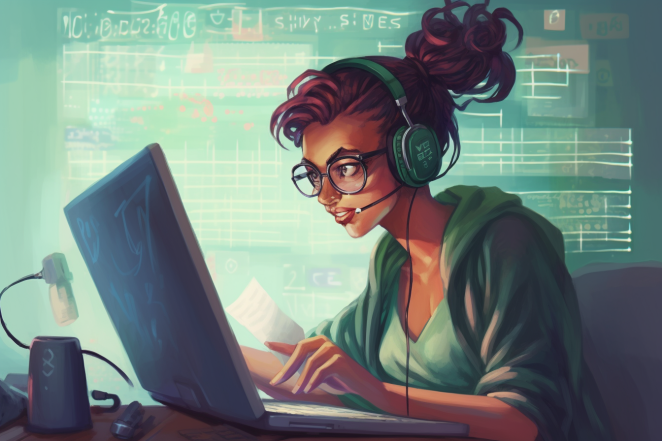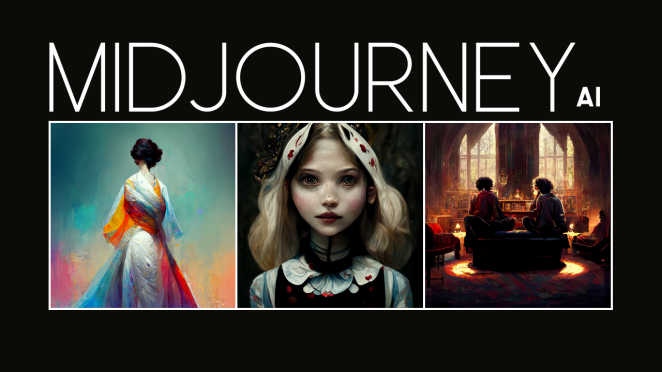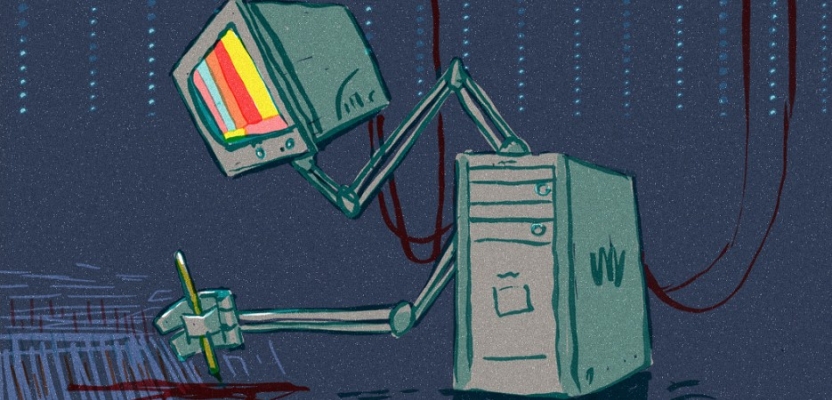The freelance economy has seen significant growth over the past decade, with millions of independent workers across various industries choosing freelancing as their preferred mode of employment.
I joined the freelance workforce over a decade ago now so you could argue I was ahead of the curve. Honestly, there have been ups and downs (the lack of paid holiday remains the primary bugbear) but I wouldn’t change it for the world and the one positive thing to come out of the pandemic is the growing societal acceptance of freelancing as a legitimate career path.
As technology continues to evolve, however, artificial intelligence (AI) has emerged as a transformative force in many aspects of our lives, including the way we work. So, today I’ll be exploring the potential impact of AI on freelancing but not in a “will it take my job?” capacity.
No, today I’ll be putting the shoe on the other foot and examining the positive aspects of AI for freelancers. Because we all need a little sunshine to cut through the rain occasionally, right?
Automating Mundane Tasks
One of the primary ways AI can benefit freelancers is by automating mundane and repetitive tasks. For instance, AI-powered project management tools can streamline communication, automate time tracking, and assist with scheduling, enabling freelancers to focus more on core tasks and creativity.

Additionally, AI-driven accounting and invoicing systems can help freelancers manage their finances efficiently, reducing the burden of administrative work.
Improved Matching Platforms
AI has the potential to enhance existing freelance job platforms by providing better matching algorithms. Freelancers often spend a considerable amount of time searching for suitable projects and clients.
AI algorithms can analyse a freelancer's skills, experience, and preferences, matching them with projects that align with their expertise. On the other side, AI can help clients find the best-suited freelancers for their specific project requirements, creating more productive and successful collaborations.
Personalised Learning and Skill Development
Continuous skill development is crucial for freelancers to stay relevant and competitive in their respective fields. AI-powered e-learning platforms can offer personalised learning experiences, tailoring courses and resources based on individual strengths and weaknesses.

This not only helps freelancers upskill efficiently but also allows them to diversify their offerings and expand their potential client base.
Enhanced Customer Support and Communication
For freelancers who provide services to clients, AI-powered chatbots and virtual assistants can revolutionise customer support and communication. AI chatbots can handle routine customer queries, freeing up the freelancer's time to concentrate on more complex tasks.
Additionally, natural language processing (NLP) advancements in AI can enable better real-time communication and language translation, facilitating seamless collaboration with clients from different linguistic backgrounds.
AI in Creativity and Content Creation
Some might fear that AI could replace creative freelancers in industries like content writing, graphic design, and music composition. However, AI should be seen as a complement rather than a replacement.

AI tools can assist creative freelancers by generating data-driven insights, automating repetitive design elements, or suggesting new ideas based on vast databases of content. This can boost productivity, leaving the freelancer with more time to focus on the artistic aspect of their work.
Challenges and Considerations
Of course, it wouldn’t be a balanced article if I didn’t also mention some of the negative aspects of the great AI race. For one thing there’s the job displacement potential, as AI automation might lead to certain tasks being taken over by machines. AI algorithms can also sometimes be biased, which may affect how freelancers are matched with projects or clients.
The rapid advancement of AI means that, if freelancers want to survive, they’ll need to adapt continuously to keep up with the changing job landscape. This is the reality I have resigned myself to and I’m starting to accept it.
The thing is, AI holds the potential to revolutionise the freelance economy by making work easier, more efficient, and productive. As it continues to evolve, we must remain adaptable, open to learning new skills, and embrace AI as tool rather than use it as a crutch or a scapegoat.





BrainChild Branding September 8th, 2023, in the evening
Ben, I am very confused with the statement, "I joined the freelance workforce over a decade ago now so you could argue I was ahead of the curve." I would be interested in hearing what type of freelance work started approximately 10 years ago to deem you 'ahead of the curve.' If you're talking AI freelance, I get it. Yes, I suppose you could argue that. However, if you're talking freelance graphics, photography, website design and development, audio, video marketing, on and on, I'd be curious to hear your rationale. As a professor at the Miami Ad School, my hundreds of freelance workers would be more than a little confused that their Masters degrees were cutting edge in 1995. Or the freelance writers and graphic designers in the 60s freelancing at the large ad agencies back in the 40s, etc. Shaking their heads wondering what they would call this in the 2000+. I'm really curious, hoping you're just talking about AI development tools.